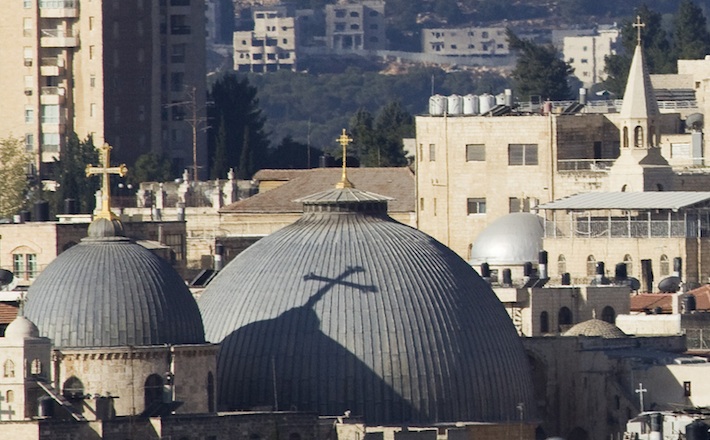Commentary on Psalm 78:1-2, 34-38
Psalm 78 is the second longest psalm in the Psalter; only psalm 119 is longer.
The psalm is often called historical, and it is an instruction or meditation in poetic form about how to live a godly life. The theme of the psalm is the relationship between God and his people. It describes the life of the Israelites from the time in Egypt to the election of David as king.
Since the psalm is very long, it is radically abridged in the lectionary. Only the two introductory verses and five verses in the middle of the psalm are chosen for the day.
The story is not told in chronological order, since the aim of the psalmist is not to write history. It is rather to give examples for coming generations how not to act. History is related in order to understand the present. In that sense the psalm is a mirror for the reader/listener. The content of the psalm is built on contrasts.
The beginning of the psalm is unusual in that it is not addressed to God but to “my people,” i. e. to those who listen to the teacher. The wording is remindful of that in the wisdom traditions of the Old Testament.
The teaching is called “parable” and ”dark sayings” (verse 2). The first word suggests something of importance, the second expression can also be translated ”mysteries” or ”riddles.” The intention is to make clear from the beginning that what follows is more than a retelling of history. There is something to learn from history, and that’s what the psalmist wants to stress.
Verses 34–37 are part of the section in the psalm where the Israelites in the desert are in focus. The picture of the people is not a flattering one. Israel on its way to the promised land is a history of constant trouble. The people are disobedient. It is only when God is forced to be harsh and punishes the Israelites that they return to God and ask for his help. The pattern is well-known from other parts of the Old Testament, from both the historical books and the prophetic literature.
The people knew that God was their rock and redeemer (verse 35), but their memory of this was short. Very soon after a conversion they were back to ”normal” again; and normal in their case was disobedience, lies, and an unsteady heart.
In contrast to the people, God is depicted as compassionate, forgiving, and mild (verse 38). The verse is not only the key verse in the psalm, it is also — according to the Masoretes — the center verse of the Psalter.1
In the following God’s reactions and actions are further described, and so are the people’s actions. The contrast between the two — God and the Israelites — is hammered in. The psalmist’s aim is clear: he wants his listeners to have trust in God and to follow God’s commandments. And the wisdom teacher knows that ”Forgiveness because of mercy is what keeps the story och God and human beings going.”2
Preaching the psalm on Holy Cross Sunday could take as a starting point three observations from the psalm.
The first is the introduction where the words ”teaching” (verse 1) and ”mysteries” (verse 2) are central. The word ”teaching” indicates that the psalm should be seen as instruction, which means that the sermon on this day could also take that form. The word ”mysteries” could be a starting point for talking about the greatest mystery of all: the cross of Jesus and what that meant for everybody (Ephesians 2:16; cf. 1 Corinthians 2:1–2).
The second observation from the psalm relates to the content of verses 34–37. Here the people’s disobedience is contrasted to God’s faithfulness. In a sermon these verses could help illustrate the similarities between God’s people then and now. It is a common insight that one of the most important reasons a person starts asking for God is when he or she is in trouble. Without being too moralistic, it is still a truth that trouble can either help us come closer to the Lord or it can alienate us from him.
The third observation comes from what is stated about God in verse 38. Since this is the central verse of the psalm, it could well be so also in the sermon. Here God’s unconditional mercy is stated against the background of his people’s behavior. God could have chosen wrath, but he chose compassion and forgiveness. Theologically speaking he poured out his wrath on the one on the cross, who was made sin (2 Corinthians 5:21) in order that all sinners for all times do not have to take the punishment of their sins. From now on there is always the possibility of forgiveness, of starting all over again, of conversion — or whatever way we choose to express this most central theme of the psalm and Christian faith.
Strightly speaking, what is said about our Lord in verse 38 is our only hope. And the sign of this is the holy cross upon which Jesus died.
Notes:
1 John Goldingay, Psalms Volume 2: Psalms 42–89 (Baker Commentary on the Old Testament Wisdom and Psalms; Grand Rapids, Michigan: Baker, 2007), 500.
2 James Luther Mays, Psalms (Interpretation; Louisville, Kentucky: John Knox, 1994), 258.


September 14, 2014